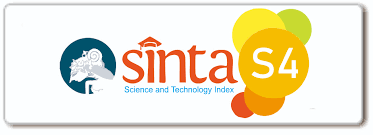The Impact of Religious Leadership on Islamic Education Development
DOI:
https://doi.org/10.31538/adrg.v5i1.1833Keywords:
Islamic Education, Religious Leaders, Religious ValuesAbstract
This study explores the role of religious leaders in promoting Islamic education and fostering community harmony, particularly in communities where social norms and religious values are not widely upheld. As moral role models and spiritual guides, religious leaders are crucial in addressing behavioural issues and raising religious awareness within society. The research uses a quantitative approach, with simple linear regression analysis using SPSS software to examine the relationship between religious leadership and the development of Islamic education. The analysis reveals that 64.9% of the variance in the development of Islamic education can be attributed to the influence of religious leaders, while other factors influence the remaining 35.1%. These findings indicate that religious leaders can significantly impact educational outcomes through guidance and active community engagement. However, the study also highlights the need for better strategies to increase public enthusiasm for religious activities, particularly in communities that are less aware of or do not practice proper religious behaviour
Downloads
References
Arifin, R., Helmi, H., Nte, N. D., Waspiah, & Latifiani, D. (2021). The Adversity on Establishing Places of Worship: Has Religious Freedom Failed in Indonesia? Legality: Jurnal Ilmiah Hukum, 29(1), 93–113. https://doi.org/10.22219/ljih.v29i1.15317
Elice, D., Maseleno, A., & Pahrudin, A. (2023). Formal, Informal and Non Formal Education Systems. Journal of Learning and Educational Policy, 41, 30–35. https://doi.org/10.55529/jlep.41.30.35
Elihami, E. (2022). Relationship between nonformal education and Islamic Education in the Context of 2045 Agenda towards Education 4.0 and Society 5.0: Bibliometric Analysis. Aksara: Jurnal Ilmu Pendidikan Nonformal, 8(2), 985. https://doi.org/10.37905/aksara.8.2.985-996.2022
Gebremariam, H. T., Dea, P., & Gonta, M. (2024). Digital socialization: Insights into interpersonal communication motives for socialization in social networks among undergraduate students. Heliyon, 10(20), e39507. https://doi.org/10.1016/j.heliyon.2024.e39507
Habibah, F. U., Hanafi, M., & Munawwaroh. (2024). Representation Of Pelajar Rahmatan Lil Alamin Values In Non- Madrasah School Through The Islamic Boarding School Curriculum Faticha. Proceedings of The Icolnelt, 147–158.
Hadziq, A., Faiz, M. M., & Fadhliyah, L. (2024). Spiritual Harmony : The Role Of Local Tradition In Building Interfaith Tolerance In Sengir. Harmoni, 23(2), 229–250. https://doi.org/https://doi.org/10.32488/harmoni.v23i1.745
Hanifah, U., Sujanah, I., Rohmawati, A. N. D., & Maisyanah, M. (2020). Implications of Formal and Non Formal Islamic Education Institutions in Indonesia on Children’s Experience. Journal of Islam and Science, 7(1), 21–26. https://doi.org/10.24252/jis.v7i1.14011
Jakandar, L. I. E., Pantiwati, Y., Sunaryo, H., & Fikriah, A. (2025). Integration of Religious Values in Character Education : Building the Morals of the Golden Generation. Al-Hayat: Journal of Islamic Education, 9(1). https://doi.org/https://doi.org/10.35723/ajie.v9i1.107
Leal Filho, W., Raath, S., Lazzarini, B., Vargas, V. R., de Souza, L., Anholon, R., Quelhas, O. L. G., Haddad, R., Klavins, M., & Orlovic, V. L. (2018). The role of transformation in learning and education for sustainability. Journal of Cleaner Production, 199, 286–295. https://doi.org/10.1016/j.jclepro.2018.07.017
Leite, Â., Nobre, B., & Dias, P. (2023). Religious identity, religious practice, and religious beliefs across countries and world regions. Archive for the Psychology of Religion, 45(2), 107–132. https://doi.org/10.1177/00846724221150024
Mala, A., & Hunaida, W. L. (2023). Exploring the Role of Religious Moderation in Islamic Education: A Comprehensive Analysis of Its Unifying Potential and Practical Applications. Jurnal Pendidikan Agama Islam (Journal of Islamic Education Studies), 11(2), 173–196. https://doi.org/10.15642/jpai.2023.11.2.173-196
Manurung, P., Karimaliana, K., Ansi, R. Y., Harahap, D. A., Ginting, D., & Subagiharti, H. (2021). The involvement of non-formal education in students’ learning needs during the covid-19 epidemic. International Journal for Educational and Vocational Studies, 3(4), 287. https://doi.org/10.29103/ijevs.v3i4.5901
Maulana, A. (2023). Analysis of Validity, Reliability and Feasibility of Student Confidence Assessment Instruments. Schola, 1(1), 1–12.
Miharja, D., & Rifani, I. (2021). Da’wah Patterns through Local Culture of Gesrek Art in Kombongan Village, Garut Regency. Ilmu Dakwah: Academic Journal for Homiletic Studies, 15(2), 323–342. https://doi.org/10.15575/idajhs.v15i2.14969
Misbahudin, Irawan, & Jaelani, M. S. (2023). The Effect Of The Religious Learning Management Model On The Quality Of Education Was Reviewed Based On Quantitative Analysis At Sma Negeri 5 BANDUNG. INDONESIA EDUCATION ZONE, 1(1), 97–109.
Patoni, A., & Rifai, M. K. (2022). The Role of Religious Leaders in Conducting Islamic Religious Education in The Community. AL-TANZIM: Jurnal Manajemen Pendidikan Islam, 6(1), 449–464. https://doi.org/10.33650/al-tanzim.v6i2.3324
Rizal, M., & Bahar, H. (2024). Examining Government Preference for Enhancing Islamic Education Through Regulatory Review. 16, 4024–4035. https://doi.org/10.35445/alishlah.v16i3.5197
Rodiyah, M., Suhermanto, & Fawait, A. (2023). The Importance of Islamic Religious Education and Moral Education in Building the Character of Primary School Children. Proceeding of International Conference on Education, Society and Humanity, 01(01), 2023.
Roy, S., Huq, S., & Rob, A. B. A. (2020). Faith and education in Bangladesh: A review of the contemporary landscape and challenges. International Journal of Educational Development, 79, 102290. https://doi.org/10.1016/j.ijedudev.2020.102290
Sari, D. A., & Pasaribu, R. A. (2022). HUMANS AS INDIVIDUAL AND SOCIAL BEINGS IN EVERYDAY LIFE Diah. Berpusi Publishing, 1(2), 29–34.
Shayan, N. F., Mohabbati-Kalejahi, N., Alavi, S., & Zahed, M. A. (2022). Sustainable Development Goals (SDGs) as a Framework for Corporate Social Responsibility (CSR). Sustainability (Switzerland), 14(3), 1–27. https://doi.org/10.3390/su14031222
Sholeh, M. I., Ali, H., Vu, P., Sokip, Syafii, A., Sahri, Wahrudin, B., & Muzakki, H. (2024). The Relationship between Teacher Training and the Use of Learning Media on Student Learning Achievement. Southeast Asian Journal of Islamic Education, 06(02), 163–179. https://doi.org/https://doi.org/10.21093/sajie.v6i2.8406 The
Suhardiyanto, A., Wijayanti, T., & Irawan, H. (2025). Exploring the concept of cultural divinity in supporting religious moderation in Indonesia. Jurnal Civics : Media Kajian Kewaganegaraaan, 22(1), 58–74. https://doi.org/https://doi.org/10.21831/jc.v22i1.134
Sulisworo, D., & Dahlan, U. A. (2025). Transformative Education in Character Development of Students in Religious-Based Schools : Narrative Review. 1475–1488. https://doi.org/10.47709/educendikia.v4i03.
Syahputra, M. R. (2021). Superior Madrasah Development Strategy in Man 2 Model Medan. Jurnal Tarbiyah, 28(2), 51. https://doi.org/10.30829/tar.v28i2.1111
Downloads
Published
How to Cite
Issue
Section
License
Copyright (c) 2024 Kholidah Nur, Puli Taslim Nasution

This work is licensed under a Creative Commons Attribution-ShareAlike 4.0 International License.








